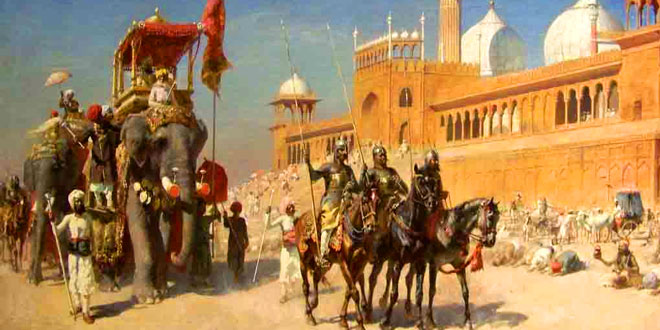Question: What is meant by the ‘internal’ and ‘external’ frontiers of the Sultanate?
Answer: The ‘internal’ frontier means the hinterlands i.e lands adjacent to a city that supply it with goods and services. Here it refers to Ganga-Yamuna Doab. The ‘external’ frontiers refers to unconquered territories i.e. southern parts of subcontinent, Bengal and Gujarat.
Question: What were Garrison towns?
Answer: Garrison towns were fortified settlements, with soldiers. The beginning Sultans of Delhi rarely went beyond heavily fortified towns occupied by garrisons. For example: Bengal and Sind were garrison towns.
Question: What were the steps taken to ensure that muqtis performed their duties? Why do you think they may have wanted to defy the orders of the Sultans?
Answer: Following steps were taken by Delhi Sultans to ensure that muqtis performed their duties:
- Land grants or iqtas were not inheritable.
- They were assigned iqtas for a short period of time.
- Accountants were appointed by the state to check the amount of revenue collected by the muqtis.
- Care was taken that the muqti collected only the taxes prescribed by the state and that he kept the required number of soldiers.
The revenue collection from iqtas was in the hand of Muqtis, who deducted his share (his salary + his army expenses) and paid the surplus to the Sultanate. There were high chances they might misuse the revenue for their own good or to revolt against the Sultanate.
Muqtis might want to defy the orders of the Sultan because too much restrictions were put on them.
What were the three type of taxes collected by the Delhi Sultans?
Answer: The three main types of taxes were:
- on cultivation called kharaj and amounting to about 50 per cent of the peasants produce
- on cattle
- on houses
Question: What was the impact of the Mongol invasions on the Delhi Sultanate?
Answer: Delhi Sultanate was under constant threat from Mongols. Genghis Khan invaded Delhi in 1219 and Sultanate faced their onslaught (destructive attack) soon after.
- The Sultans had to mobilise a large standing army in Delhi which posed a huge administrative challenge.
- They had to take various administrative measures to check prices and efficient supplies of goods to feed their armies. Alauddin Khalji was successful in controlling these challenges while Muhammad Tughluq’s measures were utter failure.
Question: Raziya Sultan was unique in the history of the Delhi Sultanate. Do you think women leaders are accepted more readily today?
Answer: Raziya Sultan, though a capable ruler, was not accepted by Turkish nobles. They were not comfortable having a queen as ruler. Her regime ended within four years.
Today women leaders are accepted more readily. They have become President and Prime minister of our nation. Still there are challenges they have to face due to gender bias.
 Class Notes NCERT Solutions for CBSE Students
Class Notes NCERT Solutions for CBSE Students




My book is From orient Black Swan and my chapter name is The Delhi Sultanate.. I was surprised when I saw that NCERT have the same questions which I have it… Only some
Hi – your site is good and knowledgeable but our teacher has said us that you have to write the same answers he will tell students to mark, in KC Public School.
ITS VERY INFORMATIVE. I AM FROM B.D.M.I. AS I WAS READING MY HISTORY BOOK I COULD NOT FIND THE ANSWERS, SO WHEN I BROWSED HERE I FOUND IT…
Nice! Same question answer from my book (The Maurya school)